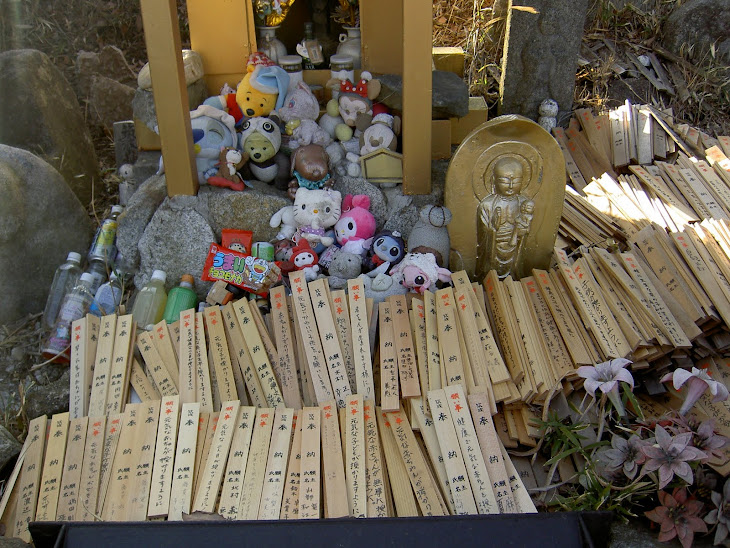How do you compare Japan and China? How does your origin affect your perception? Not only your cultural background, but also your social circumstances, culture and upbringing, political system of your home country, perhaps religious beliefs or lack of them? I was born in catholic Poland under the communist regime, which ended the same time (1989) I moved to China, another communist state. I was only a high school graduate back then, so I like to say that I actually grew up in China. As I have spent there my early youth, I have a strong sentimental attachment to the place, thus my opinions might be biased.
Even though much of the high culture of Japan came from China, for instance kanji, art , Buddhism, Confucianism and many artisan skills, there are vast contrasts in social values ,business culture and political structure. According to Samuel Huntington , the eminent American political scientist and the author of the provocative book ‘The Clash of Civilizations and the Remarking of World Order’, there exist at present six major civilizational groups: Western, Orthodox, Islamic, Hindu, Sinic and Japanese. He asserted that Japan is a state that is a distinct civilization. On the other hand, Sinic civilization consists of China, Korea, Taiwan, Singapore and Vietnam. A friend of mine, a retired professor of Bunka Women’s University, has another theory. He believes that all the differences between China and Japan could be explained by the division of nations into continental and island nations.
After having lived for 20 years in the Far East (8 years in China and 12 years in Japan), I think that it is reasonable to assume, that the West-East dichotomy approach is inappropriate. I believe that the gap in thinking between Chinese and Japanese is in fact wider than that between China and the West. In other words, China is closer to the West than Japan. Like many outsiders to Asia, I took it for granted that I could learn from China how to deal with Japan, and vice versa. However, I realized very soon that my Chinese experience was not always exactly beneficial, or even worse, put me in trouble in some of my encounters with Japanese people. For example, while working for a foreign company (producing and selling Italian-style aperitifs) and living in China, I constantly had to bargain. It didn’t matter whether I was negotiating a US$100,000 contract for my company or buying a half kilogram of tomatoes for myself; bargain was fundamental to business on every level. Chinese bargain as both an exercise and as entertainment. I mastered this game of survival pretty quickly and I have to admit that I thoroughly enjoyed it. But when I tried it first in Japan with some taxi driver or a private souvenir shop owner, they got seriously aggravated. I felt their anger was disproportional to the situation and I was surprised that they showed no sign of sense of humor.
Regarding communication, on the surface Japanese and Chinese seem alike in terms of avoiding being direct. Nevertheless, even though Chinese people like indirectness, they give you clues as to how a metaphor should be interpreted. To rephrase, Japanese like nuance and the unspoken, at times revel in ambiguity and double negatives, while Chinese can be more direct. I am working hard on my kuki yomeru ability, but my foreign friends accuse me of ‘analyzing too much’.
Despite the fact that Japan’s and China’s concept of relation within society derives from Confucian tradition, the notion of ningen kankei diverges from guanxi in Chinese, although the Chinese ideograms are the identical (関係). In Japan the emphasis is very much on socializing and business associates are kept strictly apart from the family. Yet, the Chinese basis of guanxi is the family and its natural extensions. Thus the Chinese concept is closer to Polish tradition, which puts family first and cultivates nepotism (possibly a heritage of socialism). I have to confess that I still cannot adjust to the Japanese collective co-operation for collective success as against confrontation for individual success. Fortunately Japan has a very tolerant attitude towards foreigners, and I don’t feel much pressure to follow all the social rules as an individual, but things are different when it comes to my sons. Currently, the issue that bothers me mostly is the baseball club, that my children belong to. To make a long story short, what causes my frustration is the baseball schedule occupying every single day free from school. Before my children joined the club, days off were family days. We used to go to parks, take trips , or simply laze around at home together.
Finally, Japanese are deeply sensitive to time; punctuality and good time keeping are a mark of good manners. In contrast to that, China, like other self-confident continental nations, demonstrates the general lack of concern with time. Having lived here for so long, I get upset when I have to wait 15 minutes for a foreign friend at the station, but then again, I panic when people come to my home party 5 minutes before time, when I am still finishing my make-up, after two sweaty hours spent in the kitchen.
Deng Xiaoping once declared that governing China was like trying to control fifty wild horses that wanted to run in every direction. In Poland we have a saying that “Two Poles, three opinions”. In this manner, Poland and China have much in common in the sense of the lack of integrity , common purpose and national commitment. Accordingly, I often miss the relaxed atmosphere of freedom and spontaneity, but I am not sure whether I could give up the comfort Japan offers: reliability and punctuality, keeping promises and safety. Prior to coming to Japan, if I found something in the street, for example money , I would assume it was my lucky day. Now, I would immediately put myself in the position of the person who lost it, and do my best to find the owner, by reporting it to the police. If I lived in Poland (or China), I would never ever forget to lock my car (happens sometimes to me in Japan), because the next day I would discover that the audio system and my navigation were gone, and perhaps the gasoline too.
Subscribe to:
Post Comments (Atom)




No comments:
Post a Comment